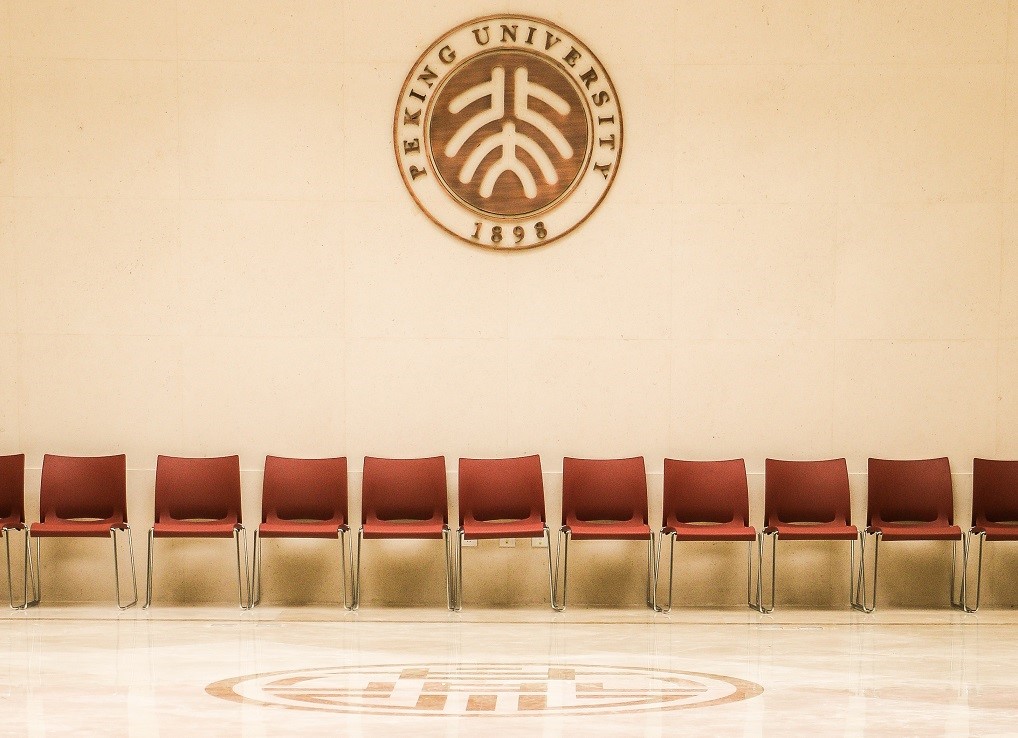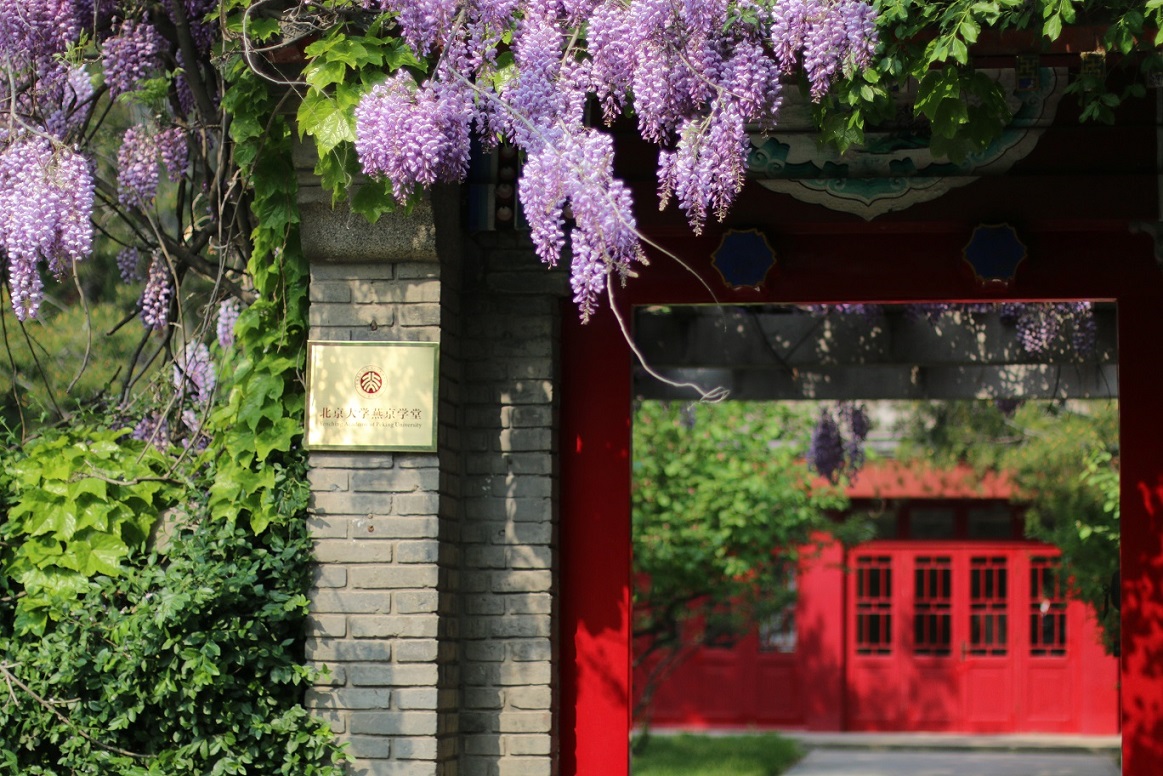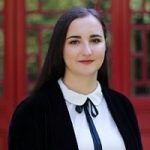‘Building Bridges’: The Yenching Academy Scholarship - SOAS China Institute
‘Building Bridges’: The Yenching Academy Scholarship – A unique opportunity to study in China

By Aki Elborzi (SOAS China Institute) in conversation with SOAS alumna, Veronika Spurná
SOAS is a partner Institute of the Yenching Academy, a prestigious postgraduate college of Peking University that was established in 2014. This partnership offers a very generous scholarship opportunity to SOAS students and recent SOAS graduates: a fully funded two-year interdisciplinary Master’s degree in China Studies, taught in English, at the top university in China.
The Yenching Academy’s customizable Master’s programme analyses China’s past, present and potential future – from both Chinese and International perspectives, where students are given flexibility in the design of their study programmes.
Furthermore, as one of its stated missions, the Yenching Academy of Peking University aims to build bridges between China and the rest of the World through its Interdisciplinary Master’s degree in China Studies.
Successful candidates, known as ‘Yenching Scholars’, are selected each year from around the World.
We spoke to one such Yenching Scholar and SOAS alumna, Veronika Spurná, about her experiences studying at the Yenching Academy, and her views on the potential of such Institutions and study abroad programmes for knowledge exchange and ‘building bridges’ in the current climate of sharply deteriorating relations between the U.S. and China, which is being felt Globally.
(Aki Elborzi): What motived you to apply for the Yenching Academy scholarship and inspire you to study abroad for a Master’s degree in China?
(Veronika Spurná): After finishing a BA in Chinese Studies at SOAS, I felt that I was only at the start of focusing on China as a career. I wanted to understand China more in depth and focus on environmental issues. The high degree of customisability at Yenching and the ability to do field research made applying to Yenching a no-brainer.
Did your studies at SOAS help prepare you for the task of taking a China Studies Master’s degree at the Yenching Academy?
Most certainly – besides the language training at SOAS and theory-based classes such as Chinese Law, spending a year at Beijing Normal University meant that I was moving to a familiar environment. This grounding allowed me to navigate Beijing smoothly from day one and work towards the goals with which I came here—particularly related to my research and career direction in the field of sustainability and EU-China relations.
What are some of the challenges and rewards you have had while studying in China?
Specifically at Yenching, the greatest reward has been building the confidence to pursue my interests, ranging from sustainability to female empowerment by applying for research grants, attending a wide variety of talks, or running student-led activities.
This was one of the reasons why I helped co-found the 我们Women Society at the Yenching Academy. During the last year, it was the most active society, which had won it the most popular society award. However, getting the society approved this year was a bureaucratic struggle. Even though we can still operate at Yenching, it raises questions about sensitivity, both perceived and real. And this is something academic institutions have to work through in China.

What advice can you give to current SOAS students on what to expect while studying at Yenching Academy?
They can expect to be in a unique and very privileged position to really explore China and learn so much beyond that. Firstly, being part of Peking University provides exposure to leading experts in niche topics related to China, either as direct lecturers, thesis supervisors, or speakers. Moreover, thanks to PKU’s status as the top university in China, many doors open more easily when it comes to research, networking, and job hunting.
Secondly, the resources of the Yenching Academy and Peking University are one thing, which kept pleasantly surprising me the whole year. YCA itself and our student clubs would regularly invite distinguished academics, professionals, and diplomats, allowing us to closely interact. On top of that, many classes both at Yenching and PKU offer fully-funded field trips across China to complement the academic experience. One of my favourite classes was the spring part of China in Transition where small teams were matched with a supervisor based on stated interests, then had to build a research proposal, and finally travel in China to do field research. My team’s research focused on the ecological protection of the Yangtze River, which brought us to three provinces to interview foreign and international NGOs and local governments.
Finally, you can expect to be surrounded by people whose novel views and diverse experiences will humble you every day. My classmates have been a constant source of stimulation as well as a lot of fun. In a sense, the student body is a lot like SOAS –it comprises students from over 40 countries every year, which leads to fascinating discussions.
Ultimately, studying at Yenching is what you make of it.
An NPR article on 1st August 2019 reported that at least five American graduates of the Yenching Academy have been questioned by the FBI since 2017 after their return to the U.S., due to perceived security threats over Chinese espionage and infiltration. This drew concern, and rebuke, from many former and current ‘Yenching Scholars’ around the World. Given this climate of growing suspicion and polarisation between China and the U.S., which has a knock-on effect Globally, how important is it to you that Chinese institutions such as the Yenching Academy exist and continue to attract inquisitive and talented international students, given the Academy’s stated aim of building bridges between China and the World?
Based on what I understand from my US classmates, the NPR article merely sensationalised routine security work. However, it is indeed reflective of the intensifying tensions and suspicion, which is why programmes that support people to people exchanges are needed. Speaking from personal experience at Yenching, it is a master’s programme like any other, only in a novel format. The overall level of intellectual engagement and calibre of many professors has been on par with SOAS. Moreover, the unique feature of studying in China is the opportunity to evaluate the narratives many of us have internalised in ‘the West’ and the way the perceptions of countries have been constructed, which closely ties into the on-going tensions. Even though programmes like Yenching are a rarity, it is encouraging that we can already see Yenching graduates engaging with China in their professional life in a nuanced, constructive way and this is what it is about for me.

Veronika Spurná (BA Chinese & Korean 2012-16, SOAS University of London) is a Yenching Scholar (2018) focusing on Politics and International Relations
For further information on the Yenching Scholarship and how you can apply via the SOAS China Institute please visit our scholarship page here.
The views expressed on this blog are those of the author(s) and are not necessarily those of the SOAS China Institute.
Originally published on 28 November 2019.
SHARE THIS POST
